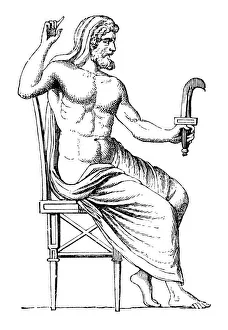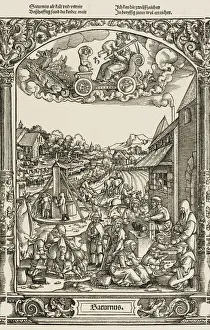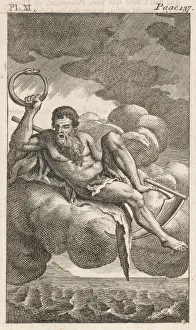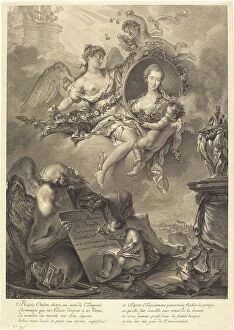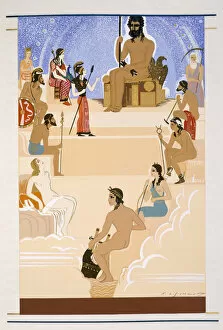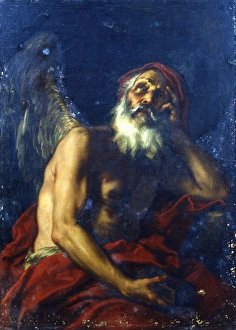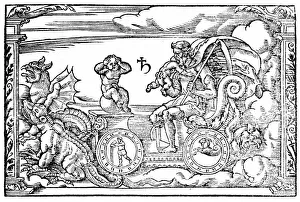Kronos Collection
"Kronos: The Timeless Mythological Figure" In Greek mythology, Kronos was known as the god of time and the leader of the Titans
All Professionally Made to Order for Quick Shipping
"Kronos: The Timeless Mythological Figure" In Greek mythology, Kronos was known as the god of time and the leader of the Titans. Often depicted as an elderly man with a long beard, he held immense power and significance in ancient tales. One of the most infamous stories surrounding Kronos is his act of devouring his own children. Fearing that they would overthrow him, he swallowed them whole. This gruesome tale symbolizes his insatiable hunger for power and control. Another intriguing connection to Kronos lies in the concept of Uroboros, a serpent or dragon eating its own tail. This symbolizes eternity and cyclical nature - much like time itself. The Allegory of Human Life fresco from 1691-92 portrays four ages of man along with virtues and fate. It serves as a reminder that time is constantly moving forward, leaving behind remnants of our existence. It also played a role in various artistic depictions throughout history. In "The Kidnapping of Venus by Kronos, " we witness his attempt to seize beauty itself, highlighting both desire and obsession. "The Worship of Zeus" showcases how even mighty gods like Zeus were subject to reverence towards their predecessors such as Kronos. It emphasizes the importance placed on lineage and tradition within Greek mythology. Giacinto Brandi's artwork from the 17th century captures Kronos' essence beautifully, showcasing his regal appearance alongside symbols representing time's passing nature. Furthermore, Uranus' castration by Kronos reveals not only familial conflict but also signifies a shift in power dynamics among deities - marking an important transition within mythological narratives. Archaeological discoveries such as the Lagina frieze shed light on historical representations related to Halicarnassus' rich past where references to they are be found - further solidifying his enduring presence across cultures. As one of the Greek Titans and father of Zeus, Kronos holds a significant place in mythology.

